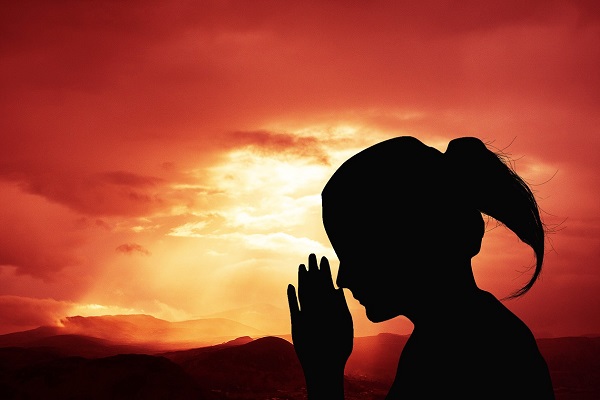Introduction
In today’s world, many people call themselves “spiritual but not religious.” They believe in higher truth, inner peace, and personal growth. But they may not follow fixed religious rules or rituals. For some, this brings freedom. For others, it raises doubts. Is it okay to walk this path? Can spirituality exist without religion? This article explores these questions with a focus on the Indian context.
Understanding Spirituality and Religion

Spirituality is the personal search for peace, truth, and purpose. It can include meditation, gratitude, prayer, service, and mindfulness. Religion, on the other hand, provides structure, community, scriptures, and rituals. Many people find deep comfort in religion. Others connect with the divine more through personal experience. Being “spiritual but not religious” means creating a direct bond with the sacred without depending on formal institutions.
Why More People Choose Spirituality Without Religion
Modern life is busy and demanding. People want simple, meaningful practices that fit into daily routines. Many young Indians prefer meditation, yoga, or nature walks over traditional rituals. Social media and travel expose them to different traditions. They often mix practices and create personal routines. This flexibility helps them stay balanced in a fast-moving world.
Also Read The Rise of Spiritual Minimalism: Embracing Simplicity for Inner Peace in India
Is It Okay to Be Spiritual But Not Religious?
Yes, it is okay. What matters most is intention. If your spiritual path makes you kinder, calmer, and more honest, it is valuable. If it brings you closer to compassion and truth, it is right for you. But if it isolates you, creates ego, or makes you avoid responsibility, then it needs rethinking. Real spirituality should bring humility and growth.
Benefits of Being Spiritual But Not Religious
- Personal freedom: You can design your own practice.
- Direct connection: You feel closer to the divine without middle layers.
- Flexibility: Practices can adapt to your lifestyle.
- Blending traditions: You can take wisdom from many sources.
Challenges Without Religion
- Lack of community: Religious groups provide support and shared rituals.
- Less discipline: Without structure, it is easy to skip practice.
- Risk of confusion: Mixing too many traditions may cause shallow understanding.
- Loneliness: A personal path may feel isolating at times.
A Middle Path in Indian Culture
In India, spirituality and religion often blend. People meditate at home but still visit temples. They read scriptures but also practise yoga and mindfulness. You can respect religious traditions while shaping your own personal spiritual journey. The key is sincerity and respect for others.
Building a Personal Spiritual Practice
1. Set Your Values
Choose 2–3 values like compassion, honesty, and courage. Let them guide your practice.
2. Create Simple Rituals
Light a diya, sit quietly for five minutes, or chant a mantra daily. Small acts build consistency.
3. Practice Breath Awareness
Slow breathing reduces stress and clears the mind.
4. Serve Others
Helping others is the heart of Indian spirituality. Offer time, kindness, or food.
5. Connect with Nature
Walk in parks, water plants, or sit under a tree. Nature teaches silence and balance.
6. Reflect Through Journaling
Write a few lines daily about gratitude and lessons learned.
7. Seek Guidance
Read scriptures, listen to wise teachers, or join satsangs. Avoid extreme or negative influences.
Spiritual But Not Religious in the Indian Context
Indian spirituality is vast. From the Bhagavad Gita to yoga, from bhajans to meditation, there are countless tools. Even without strict religion, you can use these practices:
- Reciting shlokas for inner strength.
- Doing yoga for body and soul balance.
- Practising seva (selfless service).
- Celebrating festivals with family in simple ways.
FAQs
Q1: Is it wrong to be spiritual but not religious?
No. If it makes you kinder, calmer, and more grounded, it is right for you.
Q2: Can I follow both spirituality and religion?
Yes. Many Indians practise both. You can meditate and still join temple rituals.
Q3: How can I stay disciplined without religion?
Start small. Fix a daily time for practice. Keep it simple and consistent.
Q4: Will my family accept this choice?
Most families respect sincerity. Explain your path gently and also join their rituals with respect.
Q5: Do I need a guru?
A guru can help, but not everyone has one. You can learn from books, elders, or trusted teachers.
Q6: Can this path help my mental health?
Yes. Meditation, gratitude, breathwork, and service often reduce stress and bring balance.
Conclusion
It is absolutely okay to be spiritual but not religious if your path is honest and kind. You can follow your heart while still respecting traditions. Spirituality is about inner growth, not labels. Whether you light a lamp, meditate, or serve others, the goal is the same—peace, compassion, and truth. In India’s rich spiritual culture, there is space for both religious devotion and personal spirituality.










